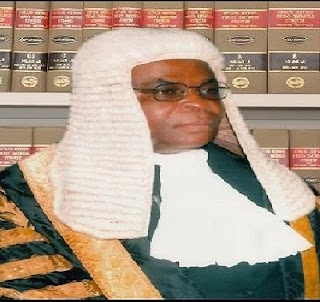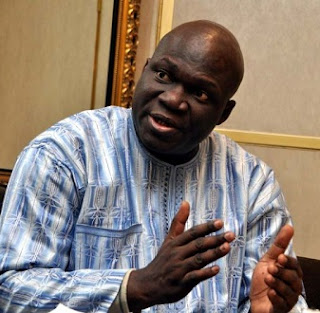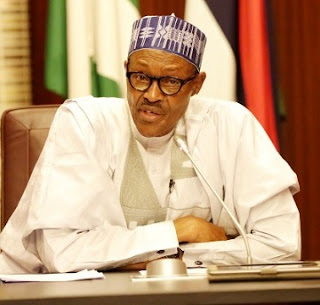Frontier News - Even as the Nigerian government continued to keep lips sealed over the recent ransom paid to Boko Haram in exchange for the release of some Chibok girls, it has been revealed that the said ransom have contributed to the recent upsurge in the killings and disappearances of soldiers engaged in the fight against the insurgents.
Sources in the military hinted FrontiersNews that despite denials by the Federal Government, money was paid to the sect to secure the release of the abducted girls.
It was learnt that the insurgents demanded for $50m for the release of the girls but about a quarter of the sum was eventually paid.
We learnt that the Federal Government paid the cash in two currencies – the naira and the CFA Francs to the leaders of the sect to facilitate the release of the girls.
But, the highly-ranked military men who are engaged in the war, and who craved anonymity because they were not authorised to speak for the military authorities, attributed the recent upsurge in the activities of the insurgents to the huge ransom paid for the release of the girls.
Prior to the current increase in the attacks by the insurgents, it was learnt that the troops of Operation Lafiya Dole, deployed in the North-East, had effectively cut off food and logistics supply to the insurgents.
Some of the sources, who are also commanders at the war front, said that the troops had effectively defeated the Boko Haram members, who were on the run while a good number of them had surrendered and taken to a rehabilitation camp established by the Defence Headquarters in Yola.
In October, 83 soldiers were reported missing days after they came under a Boko Haram attack. Though there have been increasing reports of soldiers either missing or killed since the Chibok girls were released, the military initially denied the report, it later said that only 39 soldiers were missing.
Also, on November 4, seven military men, including Lt.-Col. Muhammad Abu-Ali, were killed on their way to reinforce troops at Mallam Fatori during a Boko Haram attack. Two days later, one soldier was also killed while four others were wounded in the line of duty.
In October, 21 of the over 200 girls abducted from their school in Chibok, Borno State, in April 2014 were released by the group.
However, the Federal Government denied exchanging insurgents for the abducted girls and paying a ransom to the sect.
But the military sources insisted that Boko Haram did not release the girls without getting anything in return and that the Federal Government indeed paid a ransom and released some of the group’s strategists that were detainees.
One of the sources said it was sad that the same government that was initially seen as tough enough to end insurgency in the country failed to negotiate with Boko Haram from a position of strength.
“It is unfortunate that in government’s desperation to secure the release of the Chibok girls, it has put our (soldiers’) lives in danger by yielding to the demands of the group to collect a ransom and secure the release of its commanders.
“It is now obvious that the group has reinforced and bought more weapons to fight us.”
According to another source, left to the military, the ransom and the exchange of Boko Haram members for Chibok girls would not have taken place.
“Funds were given to Boko Haram and now we can all see the result of that action; there have been renewed attacks recently and many of our men have been killed in the process but we will not relent, we will continue to do our best to secure this nation.
“The military had reservations about the arrangement but it was not in our hands; it was a political decision that we had to abide with and it was the DSS that was directly in charge of the operation,” the source added.
Another source, who is also active in the war theatre, said, “They got the Chibok girls and suddenly the Boko Haram that we had beaten and chased out of Sambisa are attacking and killing men of quality.
“It is very obvious that they have used the money they got from the deal to buy equipment and recruit men to carry out their heinous acts.
“The group is still in Mallam Fatori, they have infested the entire area and their strongest point into Chad is Abadam. It is from there that they disperse their men to carry out attacks.
“Another thing you must note is that the towns around the borders are occupied by mercenaries from foreign countries. Where did they get the money to fund that?”
Investigation revealed that Boko Haram members, who were routed out of their dreaded Sambisa enclave by the military, had regrouped at Abadam, and were still holding onto the fringes of Mallam Fatori in the northern part of Borno State.
It was further gathered that the group was engaging the services of mercenaries with their operational base in Abadam in the far north, close to Chad.
The latest incidents contradict President Muhammadu Buhari’s assertion on December 24, 2015 that Nigeria had “technically” won the war against Boko Haram and that the militant group could no longer mount conventional attacks against security forces or population centres.
Following the President’s assertion, the Minister of Information and Culture, Lai Mohammed, also said on December 27, 2015 that “we have been vindicated because Boko Haram have been decapitated compared to the past records.”
The sect gained international attention when it kidnapped 219 Chibok schoolgirls on April 14, 2014.
Two years later, on April 10, 2016, the group said it wanted a $50m (N15.7bn) ransom to free the Chibok girls, according to a report by The Sunday Telegraph of London.
The publication said it gathered from sources close to the sect that the demand was made “during secret contacts with the government of President Muhammadu Buhari, who has said he is willing to negotiate for the girls’ freedom.”
The sect’s six-year insurgency has led to the deaths of over 17,000 people, destruction of more than 1,000 schools and displacement of about two million people.
Between May 2015 when President Buhari assumed office and October 2016, the insurgents have carried out over 20 attacks, leading to the deaths of over 2,600 Nigerians.
However, we learnt on Friday that combined forces of the ground troops, the fighter pilots of the Nigerian Air Force and local hunters had been deployed to fight the insurgents around some locations in Gwoza.
When one of our correspondents contacted the Acting Director, Defence Information, Brig. Gen. Rabe Abubakar, he said that the minor setback in the operations should not be taken to mean that the Boko Haram was a formidable force.
He told one of our correspondents on the telephone that the military was determined to defend the territorial integrity of the country and was equipped to do so.
He gave the assurance that Boko Haram would not achieve its objective of acquiring any territory in the country.
He said, “The group is not a force to be reckoned with as far as the military is concerned.
“In spite of the minor setback, it does not in any way mean that the Boko Haram is a force to be reckoned with. We will defend the integrity of Nigeria to the letter, and that is what we are committed to do.”
Faulting the payment of cash to the sect as a ransom for the girls, a United Kingdom-trained criminologist and Chairman of Puma Eye Security Services, Mr. Pedro Ayandokun, said it had to be responsible for the renewed terrorist attacks in the country.
He said, “I was never in support of making any exchange with Boko Haram. That is what is creating the problem. What they have got will not be used to buy rice, but to acquire ammunition.”
Also, the Chief Executive Officer of Security Watch Africa, Patrick Agbamu, said giving cash to the insurgents would encourage them to kidnap more girls.
He said, “The government ought not to give money to the terrorists. It will embolden them to kidnap more girls.”
Despite the insurgents’ recent attacks, Agbamu, however, asked for patience, saying, “Up till today, there are still attacks in Afghanistan and Iran. Insurgency is not easily stopped.”
The President of the Association of Industrial Security and Safety Operators of Nigeria, Dr. Ona Ekhomu, also said if the Federal Government gives money to the insurgents, it could empower them to carry out more attacks.
He said at a time when the sect was broke, giving money to them might be all they needed to regain more strength.
He said, “There were insinuations that for the 21 girls released recently by the insurgents, cash was given to the terrorists. Cash is exactly what the terrorists need to be strengthened.”
Likewise, a professor of African History, Peace and Conflict Studies and Director, Institute of Peace and Strategic Studies, University of Ibadan, Isaac Albert, said government had not been negotiating with Boko Haram from a position of strength.
He said, “We have said for some time now that we have defeated the sect but it is obvious that it is not true.”
But the Presidency on Friday insisted that the Federal Government did not pay members of the Boko Haram sect to secure freedom for the 21 Chibok girls.
The Special Adviser to the President on Media and Publicity, Mr. Femi Adesina, said the position of government remains that cash was not involved in the release.
“Information Minister, Alhaji Lai Mohammed, told the country that there was no cash involvement in the release of the 21 Chibok girls. If you have evidence that it was not so, simply produce it,” he said.
However, one of the lawmakers involved in the negotiation which led to the release of the 21 girls, confirmed that a ransom was paid to Boko Haram but said the amount was far less than $50m.
The source, who expressed shock when one of our correspondents put the question to him to confirm the payment, agreed to speak on condition of anonymity.
He said, “I don’t think it is up to that amount. Yes, there was a deal. Something like that (payment of a ransom) happened but it was never near the amount you just mentioned; it is even not up to a quarter of that amount. I can tell you that it was done (paid).
“I can also tell you that the second round of the talk was scuttled because of the disagreement on the next tranche of a ransom. The negotiation for another batch of the girls has hit the brick wall as a result of the failure to agree on an amount (to be paid as a ransom). I am speaking to you on this authoritatively.”



